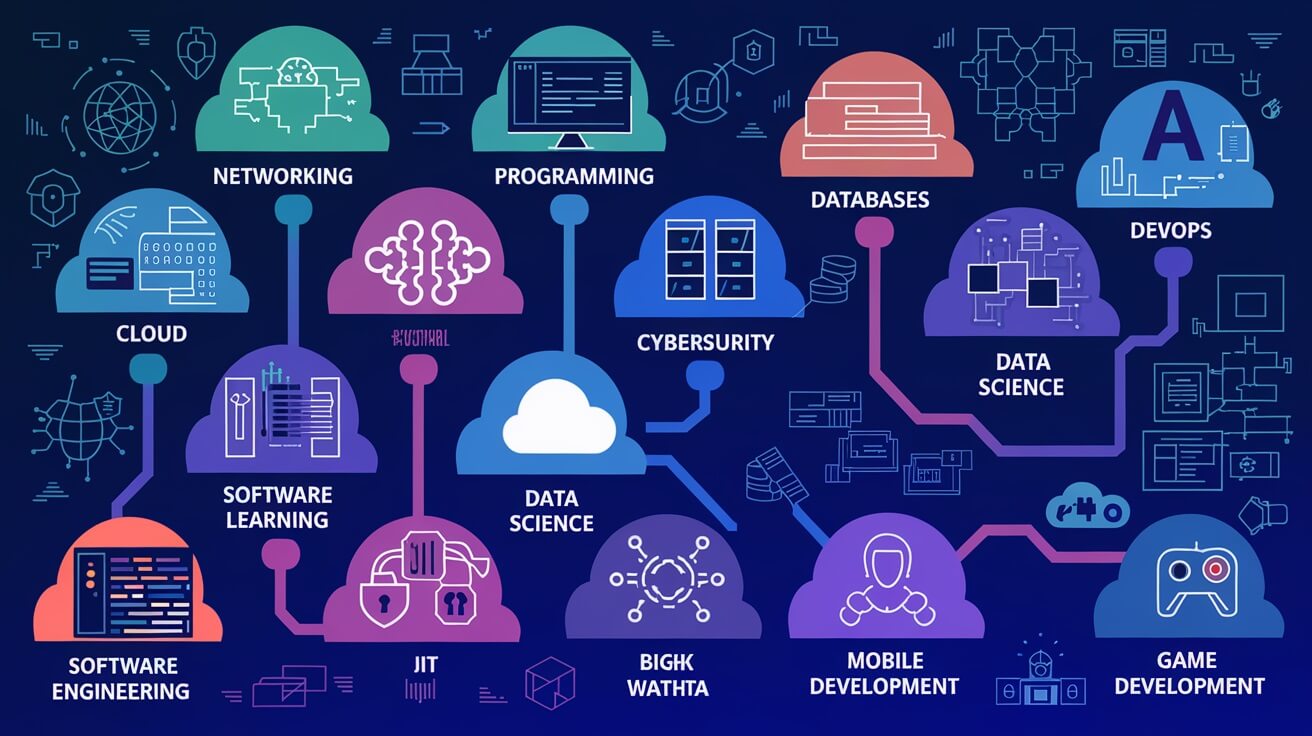
Top Skills to Succeed Without Higher Education
Do you need a college degree to succeed? It’s a question many of us ask, especially when faced with the rising costs of higher education and the shifting demands of today’s workforce. The good news is, you don’t. Success isn’t about where you went to school but what you can do.
Employers are increasingly focused on skills over degrees. A report by Glassdoor found that over 60% of hiring managers prioritize practical abilities and real-world experience over formal education. This trend opens up opportunities for anyone willing to learn, adapt, and grow.
In this guide, we’ll explore the top skills you can develop to thrive without a degree, how to learn them, and how to showcase your abilities to employers or clients. Whether starting fresh or looking to switch paths, this article provides actionable steps, real-life stories, and resources to help you succeed.
Why Skills Matter More Than Degrees

The Changing Job Market
The job market has evolved. In the past, a degree was often seen as the ultimate proof of capability. Today, it’s different. Employers usually ask, “What immediate value can you add to our team?” This shift is evident in the rise of:
-
Skill-based hiring: Companies like Google and Tesla now hire candidates without degrees for many roles.
-
Freelance opportunities: The freelance economy, projected to grow to $400 billion by 2026, thrives on skills like writing, design, and coding.
Statistics That Show the Shift
-
46% of mid-level jobs now focus on skills and certifications instead of traditional degrees.
-
Over the last five years, skills-based hiring has increased by 30% in roles in technology, marketing, and creative industries.
Real-Life Examples
Consider the story of Alex, who taught himself graphic design using free online resources. Within two years, he earned more than many degrees in his field. Alex’s secret? He should focus on developing a portfolio that showcases his skills, not relying on a diploma to speak for him.
Top Skills to Succeed Without Higher Education
Here is the list of the top 20 skills that can be used to succeed without higher education. Which skills will be perfect for you, let's decide for yourself.
| Skill | Description |
| Communication | Ability to clearly convey ideas and actively listen in personal and professional settings. |
| Time Management | Skill to prioritize tasks effectively and meet deadlines consistently. |
| Adaptability | Capacity to adjust to changes and learn new skills quickly. |
| Problem-Solving | Analytical ability to find solutions to complex or unexpected challenges. |
| Emotional Intelligence | Understanding and managing emotions to build strong interpersonal relationships. |
| Leadership | Inspiring and guiding teams to achieve goals, even without formal authority. |
| Self-Motivation | Driving yourself to achieve objectives without external prompts or incentives. |
| Team Collaboration | Working well with others to achieve shared goals efficiently. |
| Coding and Programming | Writing and understanding code in languages like Python or JavaScript. |
| Digital Marketing | Promoting products or services online through SEO, social media, and ads. |
| Graphic Design | Creating visual content like logos, posters, and web layouts using tools. |
| Project Management | Organizing and managing tasks to achieve project goals on time and budget. |
| Critical Thinking | Evaluating situations logically to make informed decisions. |
| Sales and Negotiation | Persuading others effectively and achieving mutually beneficial agreements. |
| Writing Skills | Creating clear, engaging content for blogs, reports, or communication. |
| Public Speaking | Confidently addressing and engaging an audience during presentations. |
| Financial Literacy | Managing personal or business finances, including budgeting and investing. |
| Data Analysis | Interpreting data to derive actionable insights and solutions. |
| Customer Service | Ensuring positive customer experiences and resolving issues effectively. |
| Content Creation | Producing engaging digital or written content for various platforms. |
1. Soft Skills Everyone Needs
Soft skills are the foundation of professional and personal success. They often distinguish great candidates from good ones.
Communication Skills
Clear communication is essential for collaboration, problem-solving, and leadership.
-
Tip: Practice explaining complex ideas simply through emails or casual conversations.
-
Example: During a group project, you might use communication skills to align everyone’s goals and ensure smooth execution.
Emotional Intelligence (EI)
Emotional intelligence involves understanding and managing emotions—yours and others.
-
Why It Matters: High EI helps you handle workplace conflicts and build strong relationships.
-
How to Develop: Read Emotional Intelligence by Daniel Goleman or join workshops focusing on interpersonal skills.
Adaptability
In a world where industries constantly evolve, being flexible is essential.
-
Example: When remote work surged, adaptable employees quickly transitioned, learning new tools and adjusting to virtual teams.
2. High-Income Hard Skills
Hard skills are technical abilities that directly impact job performance. They’re teachable, measurable, and often lead to lucrative careers.
Digital Marketing
Every business must build an online presence, making digital marketing a high-demand skill.
-
Skills to Learn: SEO, social media management, content marketing.
-
Where to Start: Google Digital Garage offers free certifications, and HubSpot Academy provides beginner-friendly courses.
Coding and Programming
Coding skills are a gateway to well-paying jobs in technology.
-
Languages to Learn: Python, JavaScript, and SQL are among the most sought-after.
-
Resources: Codecademy, freeCodeCamp, and Harvard’s CS50 course are excellent starting points.
Graphic Design
Graphic designers create everything from branding to website layouts.
-
Tools to Master: Adobe Illustrator, Photoshop, and Canva.
-
Portfolio Tip: Showcase your best work on platforms like Behance or Dribble.
3. Transferable Skills
Transferable skills apply across roles and industries, making them invaluable for career mobility.
Problem-Solving
Employers value critical thinkers who can identify challenges and propose solutions.
-
Example: A retail employee identifies a more efficient way to manage inventory, saving the company time and money.
-
How to Practice: Use real-world case studies or puzzles to hone this skill.
Leadership
Leadership qualities can make you a standout candidate even if you are not in a management role.
-
Tip: Volunteer to lead small team projects or organize group activities to build leadership experience.
Time Management
Good time management ensures productivity and helps meet deadlines.
-
Tools to Use: Platforms like Trello or Notion can help you plan and prioritize tasks.
How to Learn These Skills Without a Degree
1. Online Platforms and Resources
Technology and learning have never been more accessible.
-
Free Options: Coursera, Khan Academy, and YouTube offer comprehensive lessons on various topics.
-
Paid Courses: Platforms like Udemy or Skillshare often run discounts, making high-quality education affordable.
2. Mentorship and Networking
Learning from someone experienced can fast-track your growth.
-
Tip: Join LinkedIn groups or attend local meetups related to your field.
-
Example: A software developer I know landed her first job after contacting a LinkedIn mentor who provided guidance and referrals.
3. Hands-On Experience
Theory is excellent, but nothing beats practical experience.
-
Build a personal project, like creating a blog or designing a mock website.
-
Volunteer for tasks at work or in your community that align with the skills you’re developing.
Building a Career Without Higher Education
1. Create a Personal Brand
Your brand makes you unique and distinguishes you from others in your industry.
-
Step 1: Build a professional LinkedIn profile.
-
Step 2: Share insights or portfolio pieces that demonstrate your expertise.
2. Build a Standout Portfolio
-
Include examples of your best work, highlighting measurable results.
-
Example: A content writer might showcase articles that lead to increased traffic for a website.
3. Prove Your Skills
Certifications, client testimonials, or personal projects can validate your expertise.
-
Use platforms like Google Digital Garage or HubSpot Academy to gain credible certifications.
Overcoming Challenges Without a Degree
1. Addressing Bias
Some employers still favor degree holders, but you can counter this by showcasing your achievements and measurable results.
2. Gaining Credibility
Certifications and recommendations from clients or mentors can strengthen your profile.
3. Finding Opportunities
Find freelance gigs, internships, or volunteer opportunities to gain practical experience.
Conclusion
Success doesn’t require a college degree but focus, dedication, and the right skills. You can build a career that pays the bills and fulfills you by mastering essential soft skills, high-income hard skills, and transferable abilities.
Keep in mind that every journey starts with taking that first step. Pick a skill from this list, explore the resources shared here, and start learning today. The future isn’t about degrees but what you can do. And you? You’ve got this.
FAQs
Can I Succeed Without a Degree?
Yes. Focus on building in-demand skills and showcasing them effectively.
What Are the Easiest Skills to Learn?
Digital marketing and graphic design are beginner-friendly and highly marketable.
How Do I Showcase My Skills?
Create a portfolio, earn certifications, and use social media to share your expertise.
What Are the Best Platforms for Learning?
Coursera, LinkedIn Learning, and YouTube are great for online education.
Are Certifications Necessary?
While not required, they enhance credibility and show dedication to learning.
Also Read:
High-Paying Careers Without a College Degree – Your Guide
Careers That Don’t Require a College Degree
Career Options Life Skills




